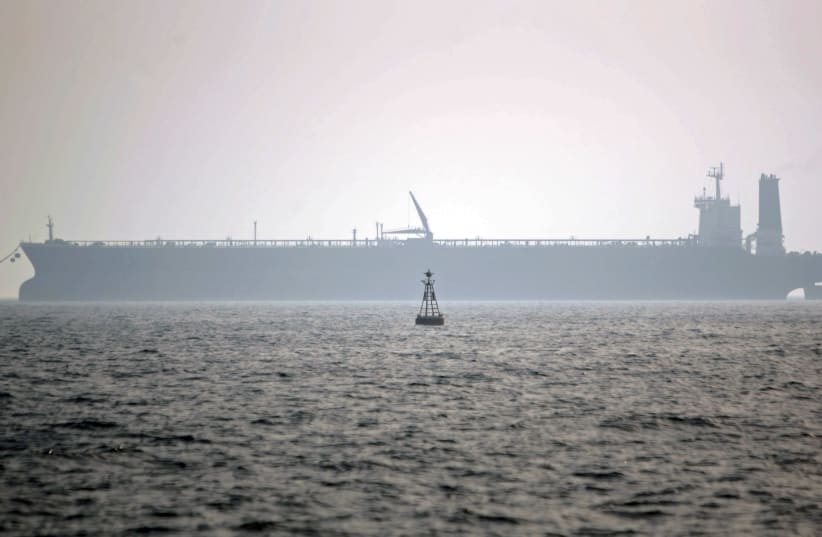A shocking claim by Israel’s environmental protection minister on Wednesday that a Libyan ship dumped containers of crude oil off Israel’s coast, causing one of the country’s worst environmental disasters, is making waves. This is because Environment Protection Minister Gila Gamliel said that Iran was responsible for the environmental harm.
The story of the ship that allegedly caused the spill is convoluted – like many things at sea that involve the shipping industry. This is because ownership of ships is often murky and involves shell companies and ships registered in one place, flying the flag of a different place, owned by a third party and captained by people from a fourth nation.
This is especially true of ships involved in illicit activity linked to countries that are under international sanctions, such as Iran.
Israel says that the ship is the Libyan-owned Emerald tanker.
“This is a crude oil tanker called Emerald, owned and operated by a Libyan company,” Gamliel said. “It was illegally carrying cargo from Iran to Syria. The ship was flying Panama’s flag. Iran is waging terrorism not only by trying to arm itself with nuclear weapons or trying to establish a base near our borders. Iran is waging terrorism by harming the environment.
“Our battle on behalf of nature and animals must be a cross-border one,” she said. “Together, we will bring to justice those responsible for the environmental terrorism, those who committed this crime against humanity. We will continue to rehabilitate the damaged beaches and the animals that were harmed. Together, we will win, and we’ll remove the pollution from our country’s shores.”
The ship was allegedly going from Iran to Syria where it was smuggling crude oil, Israel claims. Ships trying to get to Syria from Iran in the past have been interdicted so the transit can be illicit. The vessel also turned off its automatic identification system, a kind of transponder.
This is common in the shadow world of ships that conduct illicit business. According to reports, the Emerald came within tens of kilometers of Israel’s shores, within the exclusive economic zone. It spilled its oil on February 1 and 2 before continuing on to Syria. It took two weeks for the tar oil to reach Israel’s shores. Gamliel accused Iran of not just terrorizing Israel with nuclear enrichment but also harming nature.
CAN A SHIP purposely dump containers of crude oil to harm Israel’s environment? Can countries begin to use environmental terror?
It is not out of the realm of possibility. In the past, Israel has had friction with Syria over water issues, including fishing, and the Jordan River was a cause for conflict in the early years of the state. Disputes over a dam in Ethiopia have led to a war of words in northeast Africa.
However, the ability of a ship to purposely dump oil so that, two weeks later, it harms a country’s coastline appears very complex. That would require study of the currents off the coast and knowledge of where cargo needs to be dumped and at what time to end up in a certain place.
It leads to further questions about why such activity wasn’t judged to be suspicious when it was happening, rather than almost a month later.
The chance that Iran would risk damaging the coastline of Gaza or its Hezbollah friends in Lebanon – who all share a coastline with Israel – would appear to be a major risk for Tehran.
Nevertheless, recent incidents like the reported Iranian cyberattack against Israel last year, could mean that the Islamic Republic is using every asymmetric means of attack at its disposal, including the environment.
